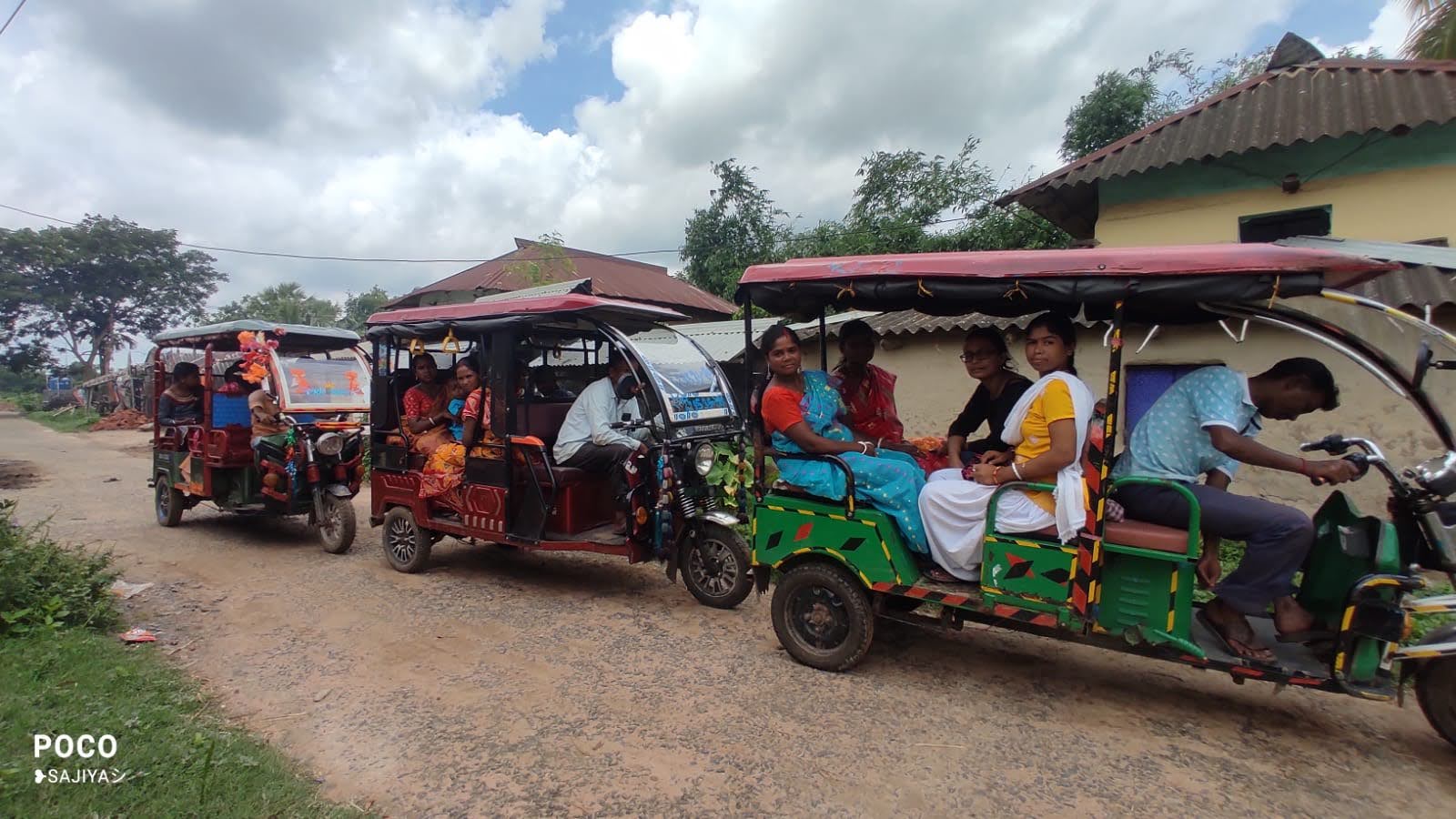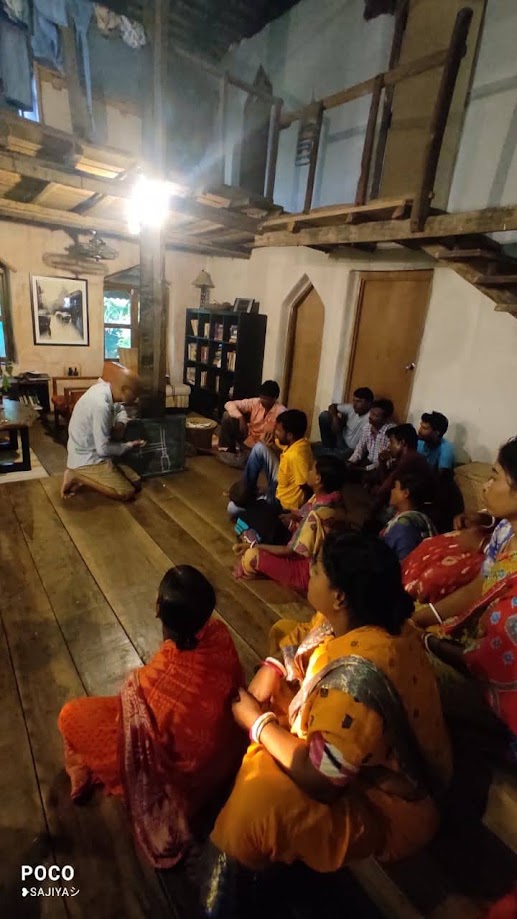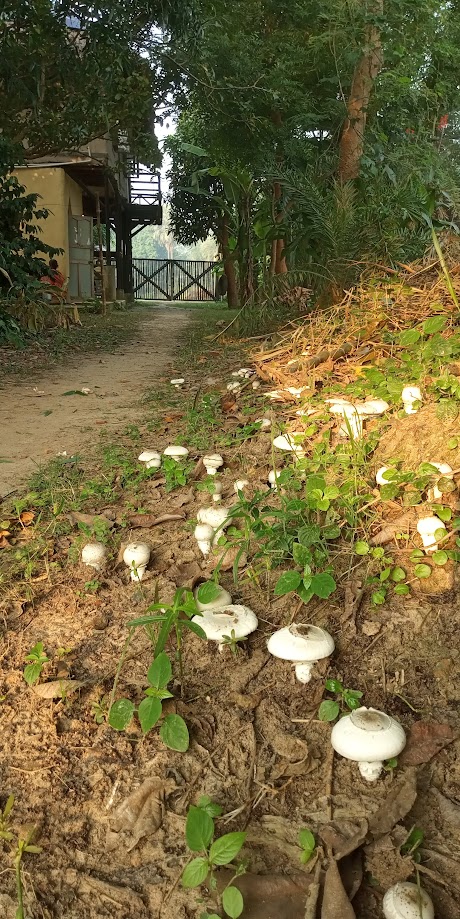

“Mitigating Environmental Crises by Using Small-Scale Local Solutions Rather Than Industrial Agriculture”
IIE Centennial Fellow Aparajita Sengupta Strengthens Climate Resilience by developing women-led local organic farms.
March 13, 2024
Aparajita Sengupta, IIE Rodman Rockefeller Fellow 2023-2024
To address issues impacting farming in India caused by climate change, IIE selected Dr. Aparajita Sengupta as a IIE Rodman Rockefeller Centennial Fellow for the 2023-24 year. Sengupta lives in India and is creating an organic farming and marketing co-operative with 15 to 30 women to develop diverse, climate-resilient agrarian and economic models in rural India.
In her first blog entry of the year, Sengupta details the inspiration for her project and the journey that inspired her to take action.
Tell us about your project.
My project is to bring together the women of my neighborhood so that we can gather the excess produce we have and create simple, preservative-free products. The project will have two elements; first, a processing unit that will include some basic equipment for making and bottling our products in an attractive and hygienic way. The second element will be a small store from which these products can be sold. Both units would be housed in buildings made of local and natural materials like mud, bamboo, and wood. The primary focus of this project is on the production and processing of chemical-free produce into chemical-free products through a locally owned and managed business run by women.
What inspired you to think about natural farming as a way to mitigate environmental impacts?
I was born and raised in Kolkata, West Bengal, India and although I grew up in a strong food culture (not just in terms of spices!), it was not until my late twenties that I became aware of the connection between modern agriculture and climate change.
My inspiration draws back to 2004 when I enrolled and graduated from a doctoral program at the University of Kentucky. During this time, I met and married my husband, a software developer and a fellow Bengali and foodie. Together, we developed an active interest in the local and chemical-free food systems we saw around us in Kentucky. We met farmers, started visiting farmers’ markets, and eventually became members of a community-supported agriculture (CSA) farm. We were so inspired that we decided to return to India to continue our lifestyle—even as with our green cards due to arrive! Once in India, we gradually transitioned from our respective jobs to traveling, volunteering, and training. In 2014, after running a vegetable CSA on leased land near Kolkata for a year, organizing an organic farmers’ market, and finding a group of like-minded people, we finally quit our jobs, bought two acres, and moved to the village of Ruppur in West Bengal.


In Ruppur, we designed our farm according to permaculture principles. We planted fruit trees and annual crops and made some changes to the landform so that we would be able to grow crops on rainwater alone. We kept some ducks, put fish in the pond, and plunged right into a life of farming. We felt that our farm was an answer to the damage done to the rural economy through devastating farming practices. We aimed to embody a small model of what farms could be and the kind of economy they could create. Our food hardly travels, we use no chemical fertilizers or pesticides, we only use rainwater to grow crops, using very little fossil fuel energy or intense manual labor, and we have been able to create enough diversity on two acres to invite scores of species of birds and small animals. If we can act as a model for farmers in rural India, a number of problems associated with farming could be mitigated at the grassroots level. This was also an opportunity to include the women of our neighborhood in the practice of small-scale organic farming and create opportunities where they could break away from generational cycles of early marriage and childbirth, allowing them to earn a living for themselves without essentially having to leave the neighborhood.
What motivated you to become an IIE Centennial Fellow?
My Fulbright Project in 2021 took me back to Kentucky to interview women who farm. In addition to exploring how many women were choosing farming as their profession, I came back to Ruppur motivated to start small organic vegetable gardens and animal-keeping set-ups in my neighborhood, which is a marginalized, low-income area in the village. I received the Fulbright Alumni Award, and with the help of that, we were able to run a few trainings in the village and set up some gardens and chicken and duck houses. The IIE Centennial Fellowship would be an opportunity to continue to empower women through the resources they already possessed—whatever items they were growing or raising on their farms could be processed into simple products and sold in the village itself.
Why is this project meaningful to you?
The bigger picture of my project is that we will be planting more trees for fruits, growing more vegetables organically, using less groundwater and external inputs, cutting product’s travel time, and creating nutritive gardens and empowering women, all on an intentionally small scale. Success is meaningful at both the local level in terms of livelihoods and nutrition, as well as an example of mitigating climate crises by using small-scale local solutions for the damage caused by industrial agriculture globally.
Hear more from Aparajita below:
Named in honor of IIE’s Centennial and association with the Fulbright Program, the IIE Centennial Fellowship seeks to help enhance Fulbright as a life-long experience and recognize alumni whose work embodies the program’s underlining values of mutual understanding, leadership, global problem solving, and global impact.